It's a difficult topic to write about. I want to say that I've engaged with Spanish culture through and through and taken it to my heart. But there's no point lying. There's a lot about flamenco that I just don't get.
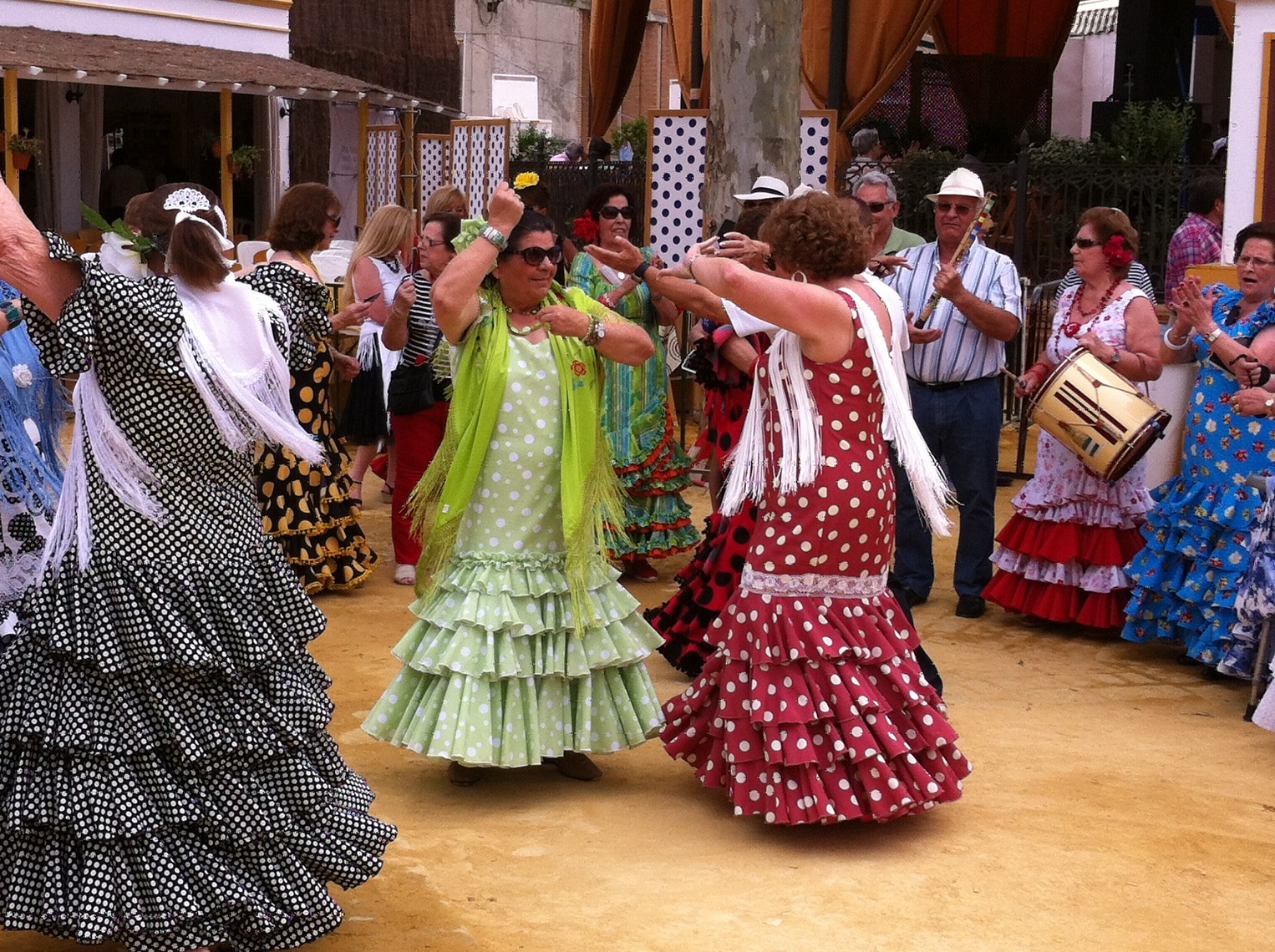 For a start, there's a massive range of flamenco, and often it's hard to know exactly what is being talked about. Adverts for "dinner with flamenco" need further exploration to ascertain whether this means guitar and singing, or dance as well. The "tourist" venues in the cities offer troupes of pretty girls in bright layered dresses, and village fiestas offer performances by cute kiddies and embarrassed teenagers. Great photo opportunities, and a sample (of a sort) of "Spanish culture".
For a start, there's a massive range of flamenco, and often it's hard to know exactly what is being talked about. Adverts for "dinner with flamenco" need further exploration to ascertain whether this means guitar and singing, or dance as well. The "tourist" venues in the cities offer troupes of pretty girls in bright layered dresses, and village fiestas offer performances by cute kiddies and embarrassed teenagers. Great photo opportunities, and a sample (of a sort) of "Spanish culture".
And then there's the deep stuff. Quite impenetrable to an outsider. Frequently just guitar and voice. Hugely intense, often not entirely tuneful, wailing, more a deep, painful sound than anything recognisable as a song. And the audience is not a separate, passive thing. They are a part, they participate, living and breathing it, calling out, unable to control the cry of Óle, leaving the occasional visitor feeling even more an outsider, just not quite getting it.
So when a good friend invited me to a performance, I first had to check that there would be dance. I'd been to an evening of just guitar and voice in my village flamenco club, and had felt distinctly disconnected. I think I snuck out after half an hour. But yes, this time there would be dance and my friend said it would be good. We took our seats in the second row. An almost entirely Spanish audience awaited the start with breathless anticipation. The first chord from the darkness demonstrated that the guitarist was a true artist. One by one four women dancers wearing simple shifts emerged from behind screens. The singer joined them - a wonderful voice - and then a male dancer. No overly-frilled spotted dresses here, but a stripped-back rawness that was a million miles from the popular stereotype of flamenco. But while I could recognise the skill, I knew that I wasn't recognising all that those around me were seeing.
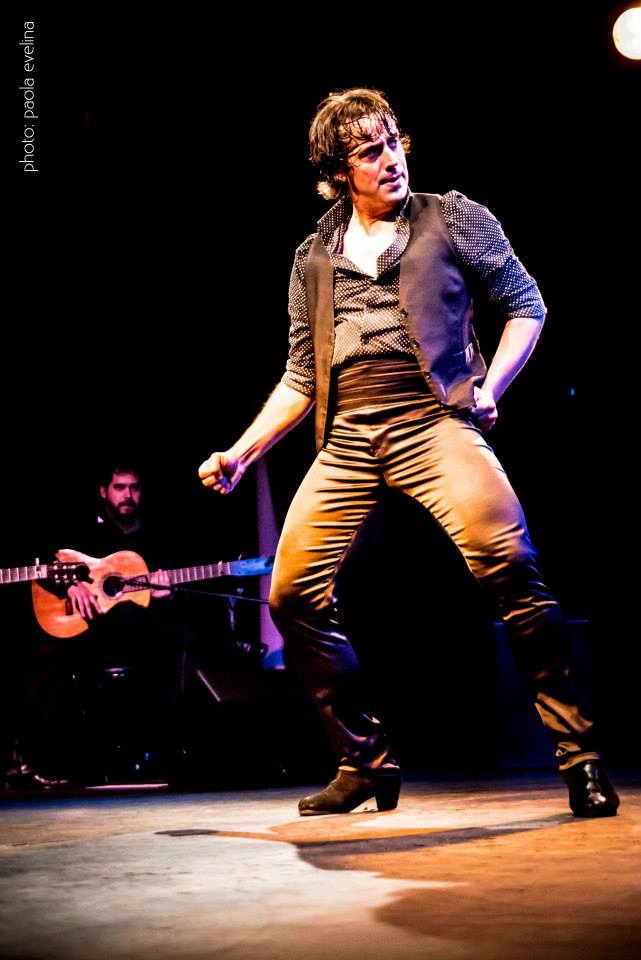 And then a second man stepped out from the wings. Jose Galvañ fixed his gaze on the audience, and slowly began to dance. Not dressed in the tight black trousers and shiny waistcoat of the commercial (tourist) flamenco, but in a much more rustic outfit. The intensity in his eyes, his fierce expression, the sheer force of his acting presence, and of course his dancing, were captivating. And after twenty minutes it dawned on me that I was watching not some regional cultural activity from the other side of Europe, but the international language of the stage. All at once, I felt as though I was watching characters from Thomas Hardy – Angel Clare, Jude, Farmer Oak - rough, poor country people, expressing the universal stories of conflict, struggle, and love. Into my mind came the rituals and performance styles of south-west England - and yes, even Morris-dancing seemed to have some links, some cross-over with what I was watching here, 1300 miles away in a Málaga side street. A fanciful idea? Not at all - the English name "morris-dance" was first recorded in the 15th century and did indeed come from Morisk, moresco, moorish dancing. Early dancers even put soot on their faces. Flamenco has roots arising from two ethnically separate but culturally-similar traditions in Andalusia, the Moorish history and the gitano (gypsy) traditions. Both dance forms have their roots in peasant, rural, folk-dancing, and even the costumes have some parallels.
And then a second man stepped out from the wings. Jose Galvañ fixed his gaze on the audience, and slowly began to dance. Not dressed in the tight black trousers and shiny waistcoat of the commercial (tourist) flamenco, but in a much more rustic outfit. The intensity in his eyes, his fierce expression, the sheer force of his acting presence, and of course his dancing, were captivating. And after twenty minutes it dawned on me that I was watching not some regional cultural activity from the other side of Europe, but the international language of the stage. All at once, I felt as though I was watching characters from Thomas Hardy – Angel Clare, Jude, Farmer Oak - rough, poor country people, expressing the universal stories of conflict, struggle, and love. Into my mind came the rituals and performance styles of south-west England - and yes, even Morris-dancing seemed to have some links, some cross-over with what I was watching here, 1300 miles away in a Málaga side street. A fanciful idea? Not at all - the English name "morris-dance" was first recorded in the 15th century and did indeed come from Morisk, moresco, moorish dancing. Early dancers even put soot on their faces. Flamenco has roots arising from two ethnically separate but culturally-similar traditions in Andalusia, the Moorish history and the gitano (gypsy) traditions. Both dance forms have their roots in peasant, rural, folk-dancing, and even the costumes have some parallels.
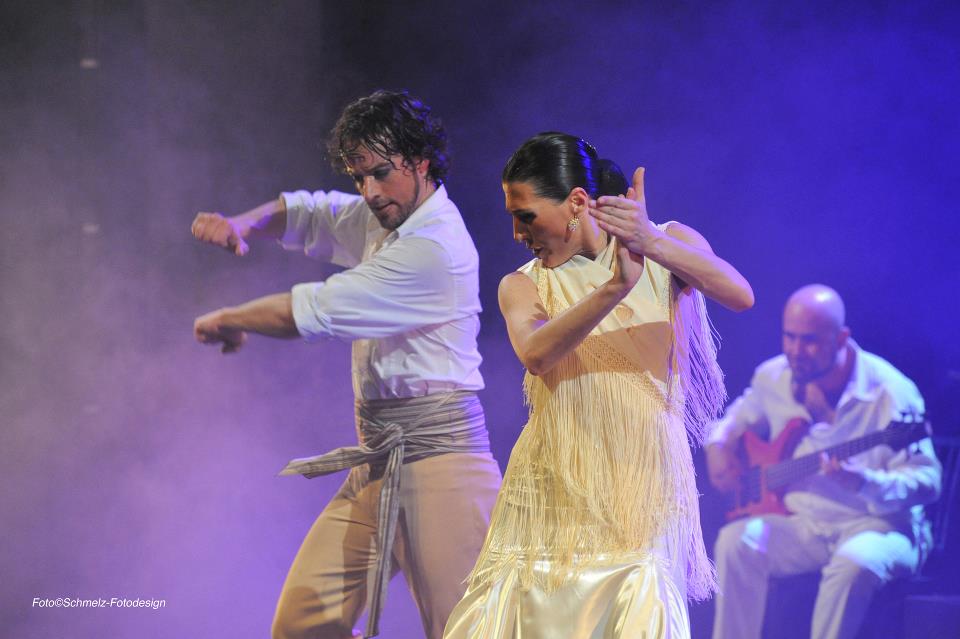 The greatest difference though lay in the story-telling. In Málaga's Teatro Echegaray a story unfolded. Angst, loss, suffering, anguish and earthiness .... whereas in my (albeit limited) experience of Morris-dancing I recall some stick-bashing, some handkerchief-waving, and some ringing of bells worn around the knees. The music too, whilst possibly both emerged from similar ancient rural traditions, has gone in very different directions in the two countries. The Spanish guitar, played with phenomenal sensitivity one moment and almost violence the next, is fundamental to flamenco, as is the cantante (singer).
The greatest difference though lay in the story-telling. In Málaga's Teatro Echegaray a story unfolded. Angst, loss, suffering, anguish and earthiness .... whereas in my (albeit limited) experience of Morris-dancing I recall some stick-bashing, some handkerchief-waving, and some ringing of bells worn around the knees. The music too, whilst possibly both emerged from similar ancient rural traditions, has gone in very different directions in the two countries. The Spanish guitar, played with phenomenal sensitivity one moment and almost violence the next, is fundamental to flamenco, as is the cantante (singer).
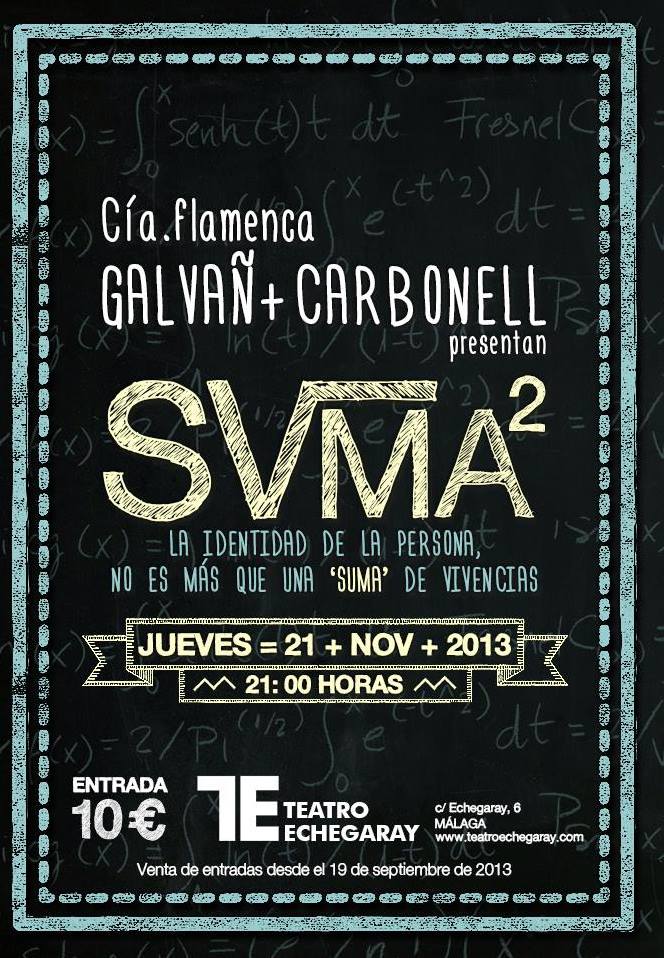 I'm not saying I got it - there were a million layers of meaning, pre-programmed into the DNA of the Andalucians, that remained a mystery to me. And I'm not saying I'm a convert - if, as on this night, I can be guided towards a "proper" performance I'd certainly go again, but I'm never going to become a regular at back-street flamenco clubs. The reactions of the Spanish people around me failed to draw me in - if anything they highlighted the wide cultural chasm that separates northern and southern europeans.
I'm not saying I got it - there were a million layers of meaning, pre-programmed into the DNA of the Andalucians, that remained a mystery to me. And I'm not saying I'm a convert - if, as on this night, I can be guided towards a "proper" performance I'd certainly go again, but I'm never going to become a regular at back-street flamenco clubs. The reactions of the Spanish people around me failed to draw me in - if anything they highlighted the wide cultural chasm that separates northern and southern europeans.
But I got something. I got flicks of sweat from Jose Galvañ's face and hair. I got the expressions on his face, his intense physicality, the visceral emotion, and a lot of the story. The 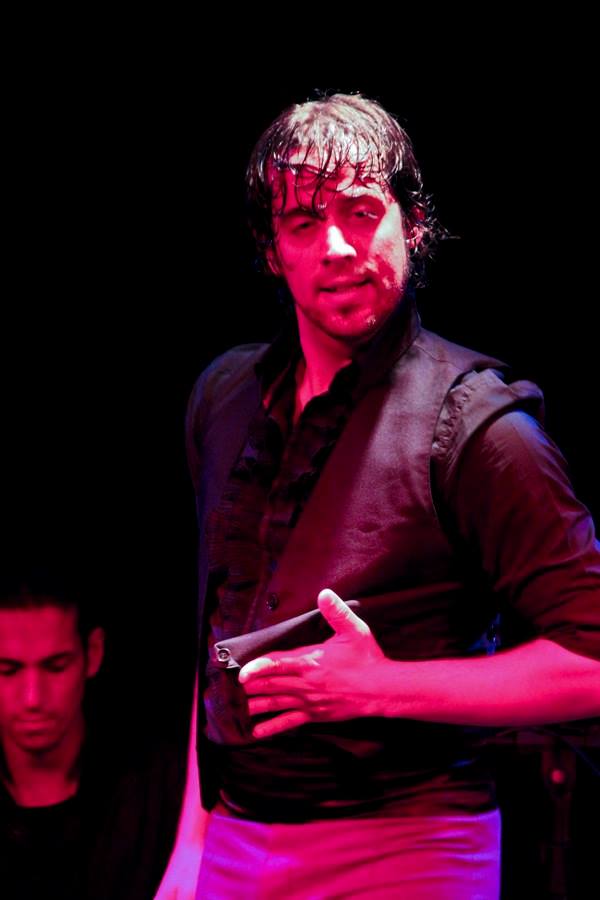 stage floor was the land beneath our feet and the dance arose directly from the earth. The singer's voice and the guitar spoke more than sounded. More than once I found myself holding my breath.
stage floor was the land beneath our feet and the dance arose directly from the earth. The singer's voice and the guitar spoke more than sounded. More than once I found myself holding my breath.
I still think there's a chasm, but maybe it's narrower than I thought it was. An unexpected vision of Dorset's favourite son Thomas Hardy popping into my head in a flamenco concert in Málaga made a fragile connection across that great divide.
© Tamara Essex 2013
The title of this post is from Martha Graham: "Dance is the hidden language of the soul". The photos of the Jose Galvañ company are all his own.
THIS WEEK'S LANGUAGE POINT:
I got it wrong last week. I called the subjunctive a tense. Both here and on the blog homepage at A Foot in Two Campos a reader corrected me. The subjunctive is a mood, not a tense. They were right, I was wrong. And it's hard to say you're wrong. No really, it actually IS hard to say you're wrong - at least in Spanish.
It's a strange verb - equivocar. Me equivoco constantemente – I’m always making mistakes. Se equivoca – he’s wrong, he’s mistaken, he got it wrong. Me equivoqué – I was wrong, I got it wrong, I made a mistake (past tense). Yo estaba equivocada – I was wrong. Me he equivocada – I’ve made a mistake. ¡No, estás equivocado! – no, you’re wrong (or you made a mistake). In Spanish there’s no clear linguistic difference between being mistaken, and being outright wrong – those shades are done with the context and the tone of voice.